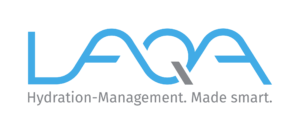SmartCup
for the users

Initial situation
At the beginning of his life, the human being consists of up to 90% water. However, with age, the body loses the ability to store fluid and this value can drop to about 55%. Nearly 70% of people over the age of 60 do not consume enough fluids.
Follow
In advanced age, reduced fluid intake causes increased illnesses and symptoms such as headaches, dizziness, fatigue, disorientation, circulatory weakness, and even renal insufficiency, dementia, diabetes, and cardiovascular failure.
Solution
Due to the predominantly physiological accumulation of dehydration med.: Volumenmangel der extrazellulären Flüssigkeit, u.a. des Blutplasmas – dem Körper wird weniger Flüssigkeit zugef…, seniors represent the primary user group. The SmartCup is therefore specially designed for this group of people. In addition to its robust design, the drinking cup is weight-optimized, dishwasher-safe and very easy to use.
Dehydration in old age
Germany is currently home to 36.9 million “best agers” and seniors over the age of 50. Their share of the population will continue to rise in the coming years, and with it the social significance of dehydration med.: Volumenmangel der extrazellulären Flüssigkeit, u.a. des Blutplasmas – dem Körper wird weniger Flüssigkeit zugef… (
Video contribution NDR: “Dehydration: What happens when you drink too little?”
) is continuously increasing.
Sufficient and regular intake of fluids is the basis for human health and well-being. In the long term, a lack of fluids leads to dehydration of the body (exsiccosis) and subsequently to various clinical pictures and symptoms.
Different factors lead to the fact that predominantly elderly patients are at risk of dehydration. It is therefore important to ensure adequate fluid intake, especially in the inpatient and outpatient care of seniors and people in need of long-term care.
Fear of going to the bathroom at night, incontinence, or prostate disease can be important barriers to drinking. For the elderly, carrying heavy beverage bottles can become burdensome. People in need of care are sometimes no longer able to provide themselves with drinks. An aggravating factor in old age is that the feeling of thirst often decreases.
The SmartCup is the solution
The smart drinking cup reminds its users by light, sound or vibration to take in liquid and analyzes drinking behavior.
A SmartCup can be assigned to a user by marking the anti-slip band, e.g. with a permanent marker.
The user’s drinking behavior is collected throughout, so that low drinkers can be reminded of the recommended daily drinking amount.
Special events such as knocking over a SmartCup or an excessively long drinking break can be signaled directly to the caregiver.
